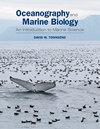CoRAl-ASSoCIATED INvERTEbRATES: DIvERSITy, EColoGICAl IMPoRTANCE AND vulNERAbIlITy To DISTuRbANCE
1区 生物学
Q1 Agricultural and Biological Sciences
引用次数: 311
Abstract
The biodiversity of coral reefs is dominated by invertebrates. Many of these invertebrates live in close association with scleractinian corals, relying on corals for food, habitat or settlement cues. Given their strong dependence on corals, it is of great concern that our knowledge of coral associated invertebrates is so limited, especially in light of severe and ongoing degradation of coral reef habitats and the potential for species extinctions. This review examines the taxonomic extent of coral-associated invertebrates, the levels of dependence on coral hosts, the nature of associations between invertebrates and corals, and the factors that threaten coral-associated invertebrates now and in the future. There are at least 860 invertebrate species that have been described as coral associated, of which 310 are decapod crustaceans. Over half of coral-associated invertebrates appear to have an obligate dependence on live corals. Many exhibit a high degree of preference for one or two coral species, with species in the genera Pocillopora, Acropora and Stylophora commonly preferred. This level of habitat specialization may place coral-associated invertebrates at a great risk of extinction, particularly because preferred coral genera are those most susceptible to coral bleaching and mortality. In turn, many corals are also reliant on the services of particular invertebrates, leading to strong feed backs between abundance of corals and their associated invertebrates. The loss of even a few preferred coral taxa could lead to a substantial decline in invertebrate biodiversity and have far-reaching effects on coral reef ecosystem function. A full appreciation of the consequences of further coral reef degradation for invertebrate biodiversity awaits a more complete description of the diversity of coral-associated invertebrates, the roles they play in coral reef ecosystems, their contribution to reef resilience and their conservation needs.与珊瑚相关的无脊椎动物:多样性、生态重要性和对干扰的脆弱性
珊瑚礁的生物多样性以无脊椎动物为主。许多无脊椎动物与硬核珊瑚生活在一起,依靠珊瑚作为食物、栖息地或定居线索。鉴于它们对珊瑚的强烈依赖,我们对与珊瑚有关的无脊椎动物的知识如此有限,特别是考虑到珊瑚礁栖息地的严重和持续退化以及物种灭绝的可能性,这是非常令人担忧的。本文综述了珊瑚相关无脊椎动物的分类范围、对珊瑚宿主的依赖程度、无脊椎动物与珊瑚之间关系的性质以及现在和未来威胁珊瑚相关无脊椎动物的因素。至少有860种无脊椎动物被描述为与珊瑚有关,其中310种是十足甲壳类动物。超过一半的与珊瑚有关的无脊椎动物似乎对活珊瑚有一定的依赖。许多人对一种或两种珊瑚表现出高度的偏好,其中通常偏爱poillopora, Acropora和Stylophora属的物种。这种程度的生境专门化可能使与珊瑚有关的无脊椎动物面临灭绝的巨大危险,特别是因为最受欢迎的珊瑚属是那些最容易受到珊瑚白化和死亡影响的珊瑚属。反过来,许多珊瑚也依赖于特定的无脊椎动物的服务,导致丰富的珊瑚和相关的无脊椎动物之间的强烈反馈。即使是少数首选珊瑚类群的丧失,也可能导致无脊椎动物生物多样性的大幅下降,并对珊瑚礁生态系统功能产生深远影响。要充分认识到珊瑚礁进一步退化对无脊椎动物生物多样性的影响,需要对与珊瑚有关的无脊椎动物的多样性、它们在珊瑚礁生态系统中所起的作用、它们对珊瑚礁恢复力的贡献以及它们的保护需要进行更完整的描述。
本文章由计算机程序翻译,如有差异,请以英文原文为准。
求助全文
约1分钟内获得全文
求助全文
来源期刊
自引率
0.00%
发文量
0
期刊介绍:
With increasing interest in the field and its relevance in global environmental issues, Oceanography and Marine Biology: An Annual Review provides authoritative reviews that summarize results of recent research in basic areas of marine research, exploring topics of special and topical importance while adding to new areas as they arise

 求助内容:
求助内容: 应助结果提醒方式:
应助结果提醒方式:


